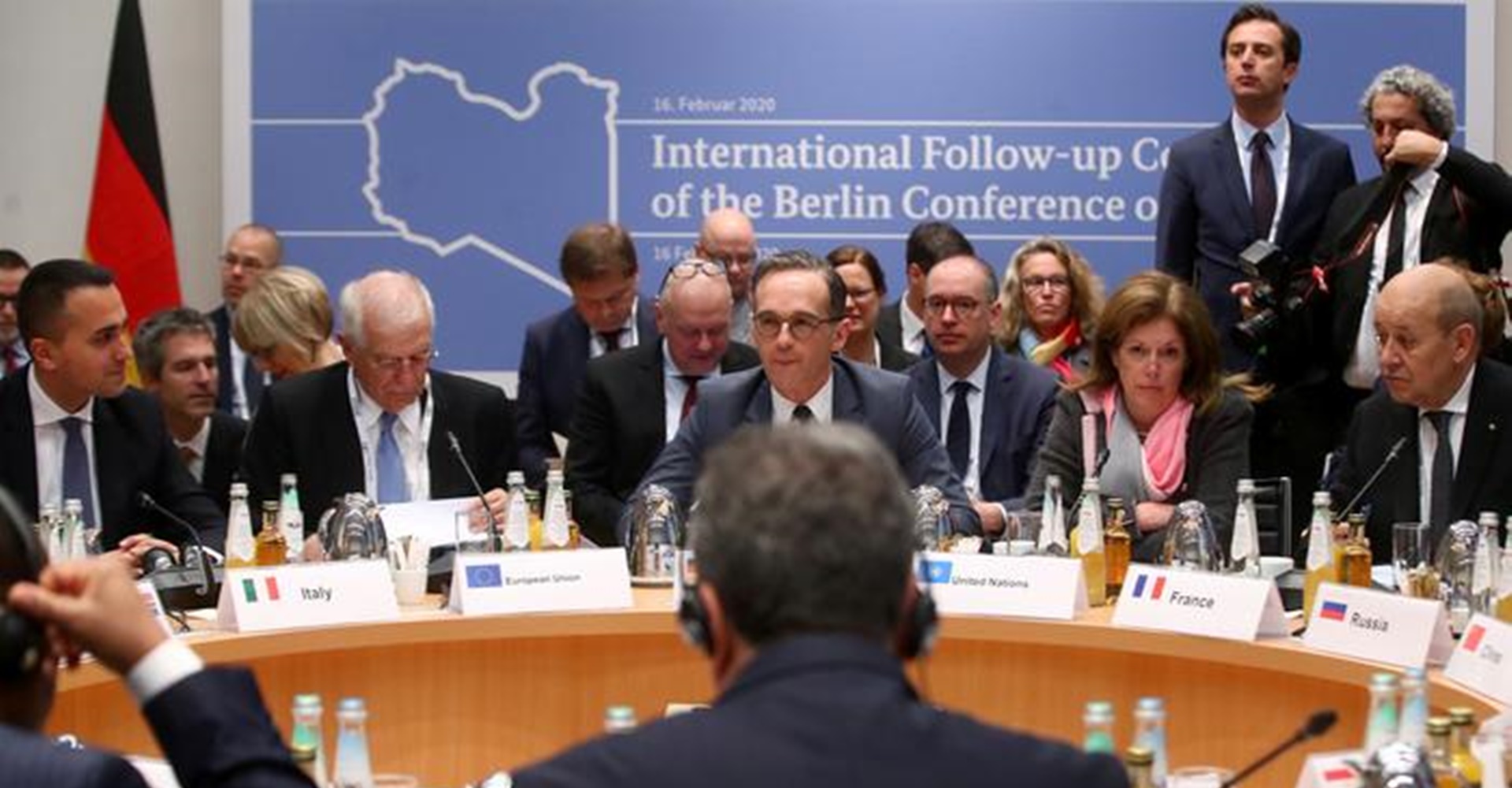The UN’s deputy Libya envoy said the Libyan embargo has “become a become a joke.” The German foreign minister has called for an EU mission to enforce the failing weapons ban.
German Foreign Minister Heiko Maas on Sunday called for a European Union mission to enforce the Libyan arms embargo during a talk on the sidelines of the Munich Security Conference.
He said he would present his proposal at a meeting on Monday between EU foreign ministers.
“We still need to talk about who contributes what, but there is an EU satellite that is already there,” he said. “In addition we have not succeeded in deciding, due to differing opinions, whether ships could also be deployed.”
He added that there must be greater surveillance of weapon shipment routes to the country, to monitor violations of the arms embargo.
“A resolution will be found that contains an EU contribution to the enforcement of the weapons embargo, in a way that is acceptable for all EU member states,” Maas said.
“The African Union should deliver its own contribution to the solution in the coming weeks,” he added.
‘Hanging by a thread’
Libya’s deputy envoy, Stephanie Williams, said the truce in Libya is only hanging by a thread, and that the economic situation is deteriorating. “The arms embargo has become a joke,” she said. “It’s complicated because there are violations by land, sea and air, but it needs to be monitored and there needs to be accountability.”
Williams also announced that an “inclusive Libyan political forum” will be held during the last week of February in Geneva.
About a dozen foreign ministers and representatives of international organizations gathered to discuss new steps to end the conflict in Libya, following a ceasefire agreement made at a summit in Berlin last month.
“It is now a matter of implementing step by step what was decided in Berlin,” Maas said. On Wednesday, the UN Security Council endorsed a 55-point road map for ending the civil war, and condemned the rise in violence in Libya.
2020 Humanitarian Response Plan
Following the talks, the UN also released a summary of its 2020 Humanitarian Response Plan in Libya. The plan “projects that an overall number of 900,000 people will require some form of humanitarian assistance in 2020,” according to a press release issued by the UN.
“The increasing use of explosive weapons has resulted in unnecessary loss of life, displacement, destruction and damage to vital civilian infrastructure, such as hospitals and schools.”
According to the statement, the plan aims to provide “lifesaving food, shelter, health, water and sanitation and hygiene assistance,” and greater access to basic services.
Contentious Berlin summit
At last month’s summit, 16 states and organizations agreed to end outside interference in the ongoing civil war. The steps that were supposed to be taken were a ceasefire, compliance with an arms embargo and continuing negotiations between the warring factions.
However, arms deliveries to the North African country have so far continued, a move that UN Secretary-General Antonio Guterres dubbed a “scandal”at a press conference at the UN headquarters in New York earlier this month.
“They committed not to interfere in the Libyan process and they committed not to send weapons or participate in any way in the fighting,” he said. “The truth is that the Security Council (arms) embargo remains violated,” he said.
Read more:Several countries violated Libya arms embargo since Berlin summit: UN
About 35 heads of state and government and almost 100 foreign and defense ministers are attending the 56th edition of the conference this weekend.
dw.com / balkantimes.press
Napomena o autorskim pravima: Dozvoljeno preuzimanje sadržaja isključivo uz navođenje linka prema stranici našeg portala sa koje je sadržaj preuzet. Stavovi izraženi u ovom tekstu autorovi su i ne odražavaju nužno uredničku politiku The Balkantimes Press.
Copyright Notice: It is allowed to download the content only by providing a link to the page of our portal from which the content was downloaded. The views expressed in this text are those of the authors and do not necessarily reflect the editorial policies of The Balkantimes Press.

